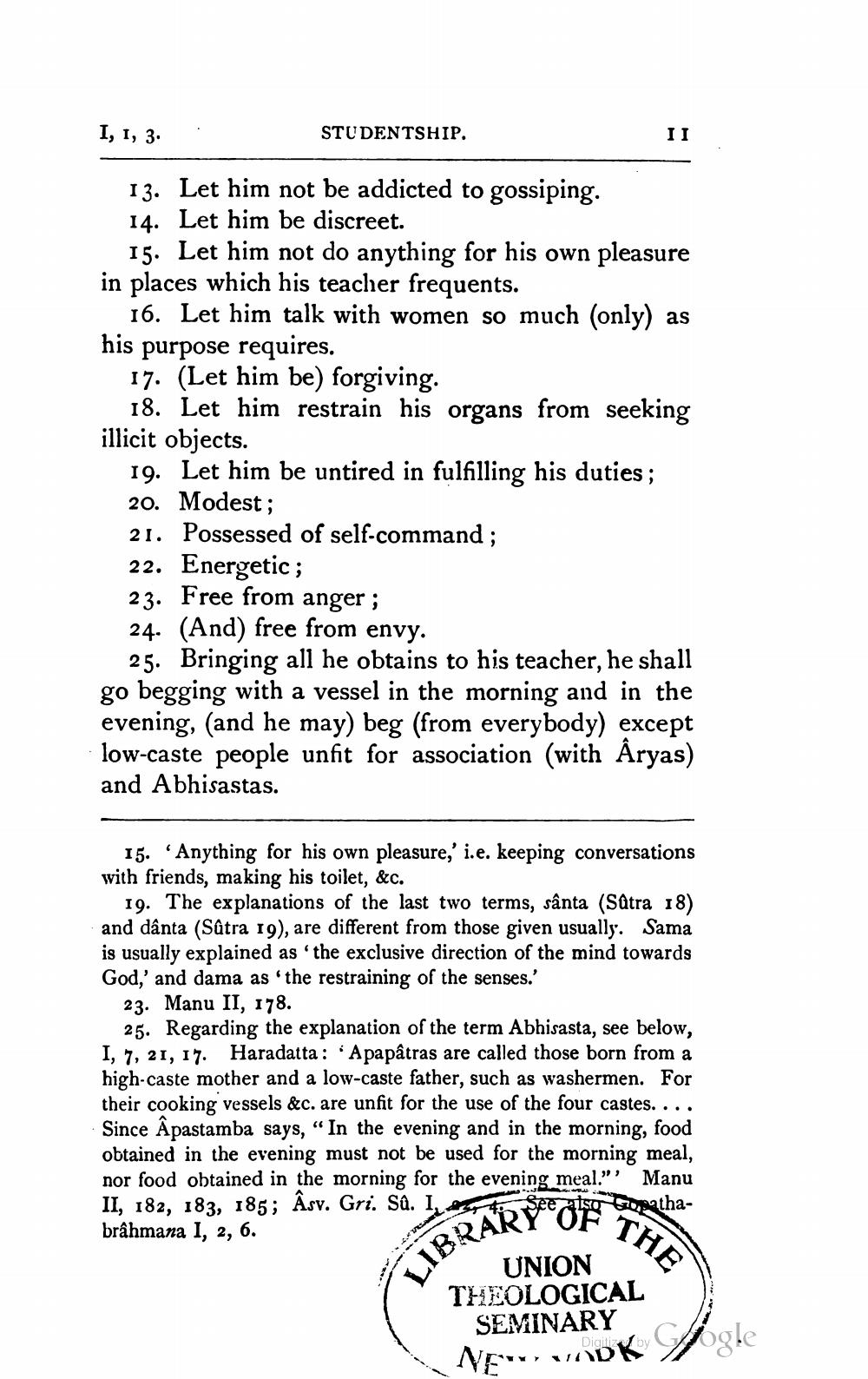________________
I, I, 3.
STUDENTSHIP.
13. Let him not be addicted to gossiping.
14. Let him be discreet.
15. Let him not do anything for his own pleasure in places which his teacher frequents.
16. Let him talk with women so much (only) as his purpose requires.
17. (Let him be) forgiving.
18. Let him restrain his organs from seeking illicit objects.
19. Let him be untired in fulfilling his duties; 20. Modest;
II
21. Possessed of self-command;
22. Energetic;
23. Free from anger;
24. (And) free from envy.
25. Bringing all he obtains to his teacher, he shall go begging with a vessel in the morning and in the evening, (and he may) beg (from everybody) except low-caste people unfit for association (with Aryas)
and Abhisastas.
15. Anything for his own pleasure,' i.e. keeping conversations with friends, making his toilet, &c.
19. The explanations of the last two terms, sânta (Sutra 18) and dânta (Sûtra 19), are different from those given usually. Sama is usually explained as 'the exclusive direction of the mind towards God,' and dama as 'the restraining of the senses.'
23. Manu II, 178.
25. Regarding the explanation of the term Abhisasta, see below, I, 7, 21, 17. Haradatta: Apapâtras are called those born from a high-caste mother and a low-caste father, such as washermen. For their cooking vessels &c. are unfit for the use of the four castes. . . . Since Apastamba says, "In the evening and in the morning, food obtained in the evening must not be used for the morning meal, nor food obtained in the morning for the evening meal." II, 182, 183, 185; Asv. Gri. Sû. I
Manu
brâhmana I, 2, 6.
See also
patha
LIBRARI
X/6
THE
UNION THEOLOGICAL SEMINARY
NEW ogle
Digitiz by




